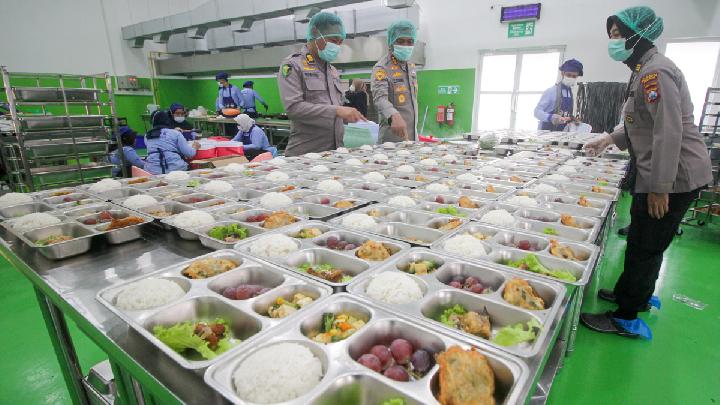Copyright tempo

TEMPO.CO, Jakarta - Edy Wuryanto, a member of Commission IX of the House of Representatives, believes the government failed to prepare an adequate system to anticipate the supply chain impact of the Free Nutritious Meals (MBG) Program. Due to this weak planning, Edy stated, the prices of staple foods such as chicken and eggs have soared, squeezing the purchasing power of citizens, especially the working class and families with irregular incomes.According to the PDIP politician, the MBG program must be accompanied by careful calculations of raw material needs in each region. Edy cited data from the Central Statistics Agency (BPS), which recorded food inflation in October (month-to-month) reaching 0.28 percent, with chicken eggs (4.43 percent) and chicken meat (1.13 percent) being key contributing commodities."The MBG program should be accompanied by careful calculations of raw material needs in each region. Every time a Nutrition Program Implementation Unit (SPPG) is established, there is an additional need for chicken, eggs, fish, vegetables, and fruit. The quantities can be calculated, but when the government fails to prepare for them, the impact is a supply shortage and soaring prices," said the Indonesian Democratic Party of Struggle (PDIP) politician in a written statement on Tuesday, November 4, 2025.Edy stressed that the food supply chain is the lifeblood of the MBG's success. Therefore, coordination between the central and regional governments is critical. "The central government needs to actively involve regional governments to mobilize local farmers, livestock breeders, fish farmers, and fishermen. We must ensure that raw materials are not imported from outside the region," he said.As a strategic step, Edy encouraged the government to utilize the People's Business Credit (KUR) program so that small farmers and livestock breeders can increase their production capacity. With this soft loan, Edy hopes that producers can utilize and increase their output."Moreover, the Ministry of Finance has regulated a policy for distributing funds held at Bank Indonesia (BI) of around IDR 200 trillion. This amount could be directed to strengthening the food sector economy, rather than simply waiting for market intervention," he said.Furthermore, Edy urged local governments to bridge farmers, fishermen, livestock breeders, and fish farmers with the SPPG, ensuring their harvests and produce are absorbed. Livestock breeders, he added, must also be facilitated in obtaining veterinary control numbers (NKV) to ensure hygiene and sanitation. "If this is implemented, the economy will run smoothly. The economic impact of the MBG program will be fully realized," he said.Edy also criticized the government's statement that the increase in chicken and egg prices is a sign of the MBG's success, calling it flawed logic. "The success of a social program cannot be measured by rising food prices. On the contrary, the indicator of success is that the MBG can be safely distributed to beneficiaries and prices remain stable. If people are having difficulty purchasing eggs, that indicates a serious problem in the supply chain design," he argued.He then cited the case of Grobogan Regency, Central Java, which has 125 Nutrition Program Implementation Units (SPPG). To meet the region's egg needs, Edy noted, approximately 500,000 laying hens are required, while local farmers can only provide 200,000.This shortage of 300,000 hens necessitates importing supplies from other regencies, increasing distribution costs and limiting the availability of eggs in the area of origin. This does not account for the need for fish, vegetables, and fruit. "The government should have been able to anticipate and close gaps like this long before the program was implemented," said the legislator from the Central Java III electoral district.Edy reminded that the working class and non-MBG recipients are now the most impacted groups. "Factory workers, honorary teachers, contract health workers, and even street food vendors are all having to spend more money just for basic necessities. Continuously suppressing people's purchasing power like this is not healthy, and an immediate solution is needed," he asserted.As a solution, Edy urged the government to develop a map of food production and demand by region to avoid stock shortages. He also emphasized the importance of partnerships among livestock farmers, cooperatives, and local governments, as well as building local food reserves in each district. "Feed subsidies, logistics facilities, and production incentives can be a way to maintain stable prices without stifling smallholder businesses," Edy concluded.Editor's Choice: Indonesia's Free Meal Program May Expand to Elderly and People with DisabilitiesClick here to get the latest news updates from Tempo on Google News



